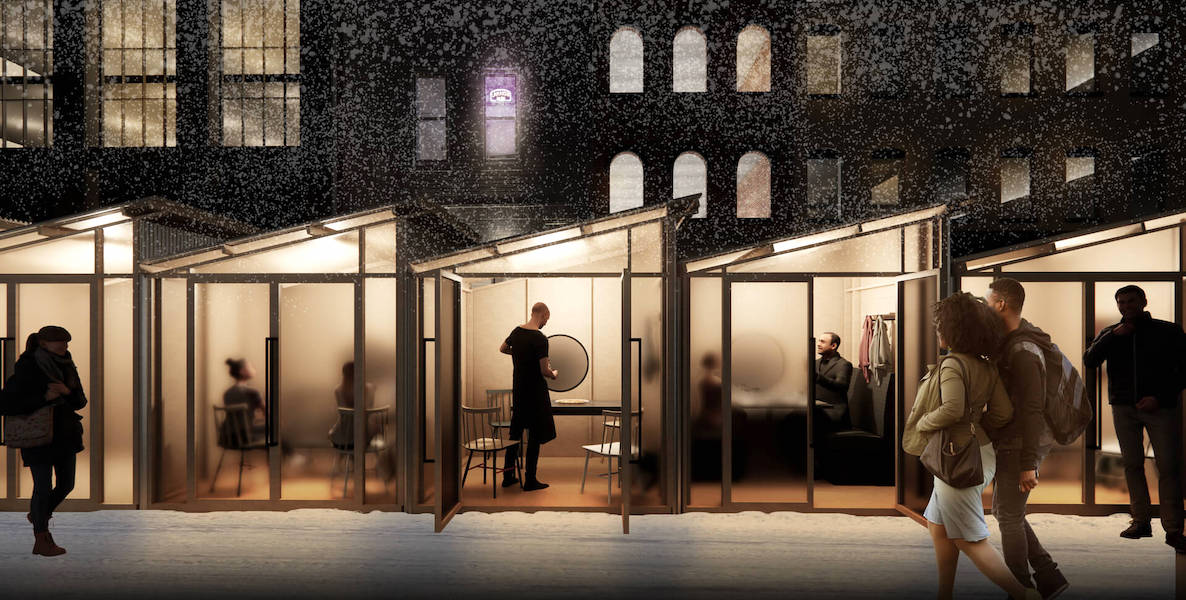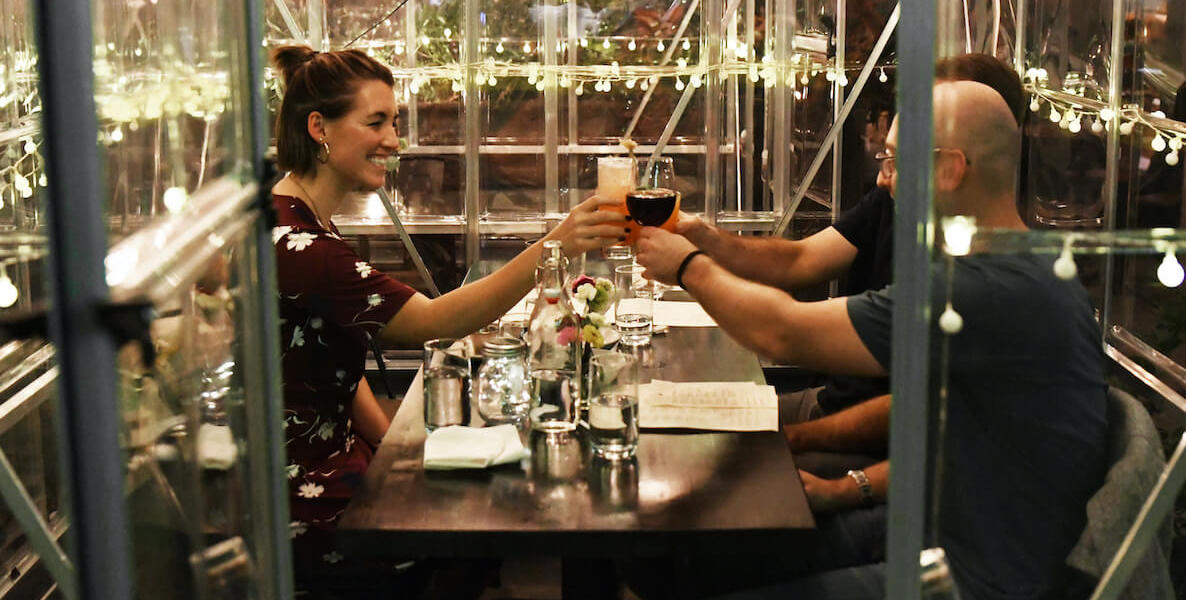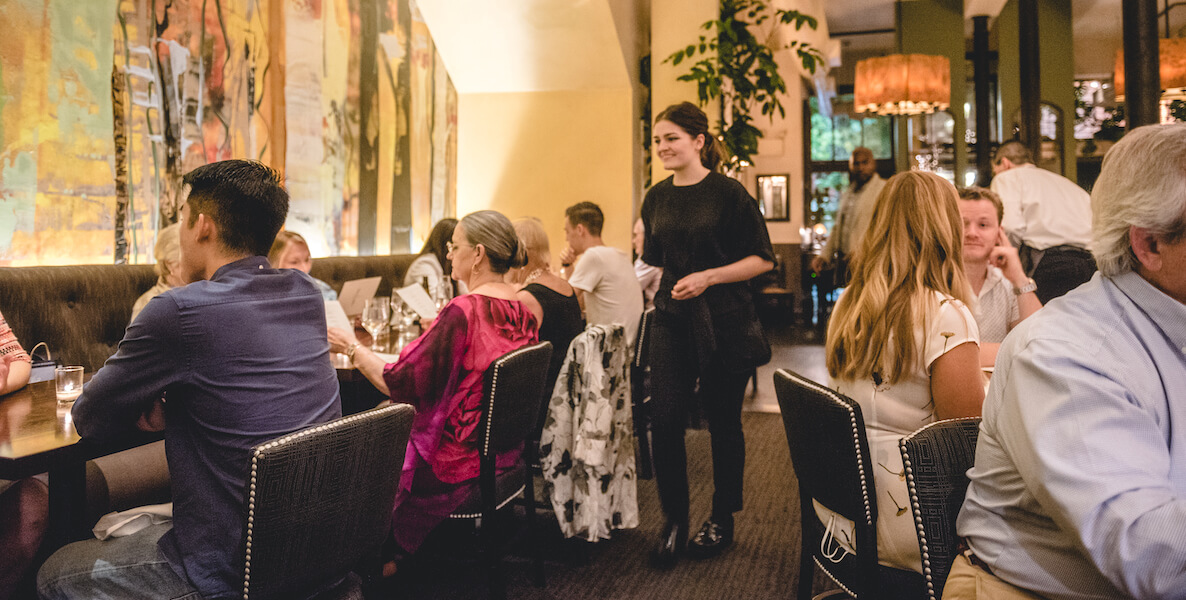to this story in CitizenCastListen
Last weekend, while Governor Cuomo delayed plans to expand New York’s indoor dining, Chicago fully banned it. But back in August, as Chicagoans fanned themselves over cocktails in rooftop gardens and street eateries, the city was already hatching a plan to help restaurants survive the biting winter.
In collaboration with BMO Harris Bank and the Illinois Restaurant Association, the city of Chicago launched the Chicago Winter Dining Challenge to cull design ideas for sustaining outdoor dining through colder temperatures.
“We need to come up with safe and affordable solutions, so we can keep our iconic restaurants open and not see our city become a hollowed-out shell.”
They called for submissions focused on “human-centered” design principles that facilitate in-person dining experiences, not delivery or takeout. Guidelines also included stipulations about accessibility, inclusivity and feasibility. And all submissions had to comply with Covid-19 restrictions.
In less than two months, the city received more than 600 submissions. A panel of judges including architects, designers, chefs, restaurateurs and servers selected the top three ideas, which were announced earlier this month.
Chicagoans stepped up with some amazing ideas
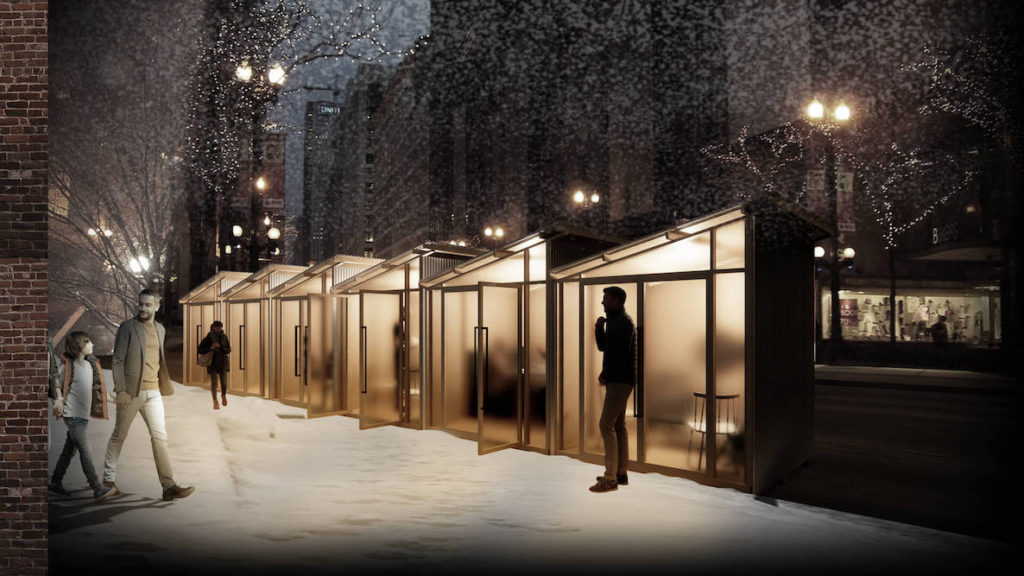
Among them: ASD | SKY—a creative firm headquartered in Atlanta—pitched their idea for parking-lot sized modular cabins inspired by ice fishing huts, with ambient warmth coming from radiant floor heaters. The three-person team from ASD | SKY—Nicole Grillet, Amy Young and Steven Fendley—said they were focused on designing a destination.
“We wanted a solution that sparked the joy,” Grillet said, invoking the famed Marie Kondo-ism. “It’s about evoking a feeling of something special and joyful—a curated experience that feels celebratory.”
“We wanted a solution that sparked the joy,” Grillet said. “It’s about evoking a feeling of something special and joyful—a curated experience that feels celebratory.”
Neil Reindel and Flo Mettetal, two urban designers from Chicago, were selected for their two-person block modules—a set of rolling cubes that each hold a table large enough for two people. With open left and right sides for ventilation, restaurants would be able to roll together multiple cubes for larger parties. The modules would be warmed with radiant heat from a thermal mesh system embedded in the walls.
Local graphic designer Ellie Henderson won for her submission for a heated table, similar to Kotatsu tables common in Japan. Her design is the most adaptable—a blanket draped over a table captures heat in the space underneath it, where diners’ legs are, and an additional hard surface placed on the blanket makes the table top suited to dining.
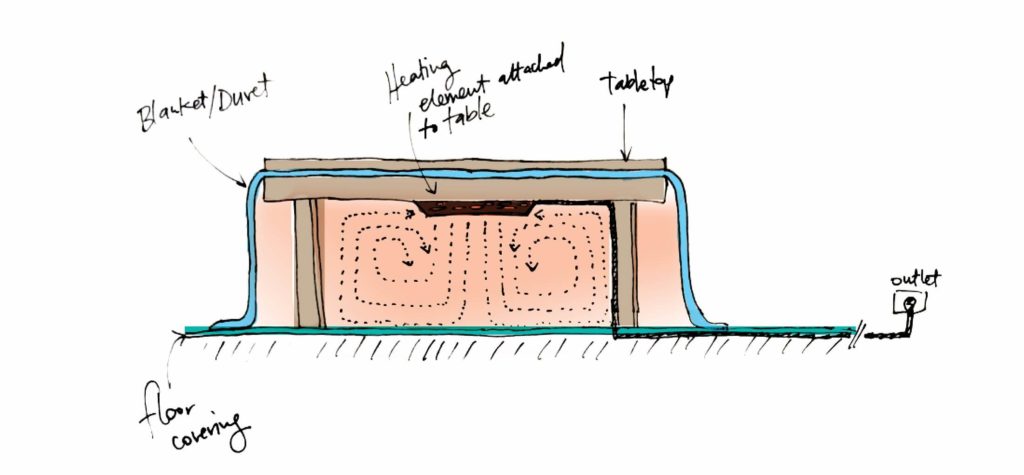
The blanket can simply capture body heat, or—during colder weather— small heating elements can be placed on the underside of the table to provide more warmth. Henderson points out that, as Kotatsu tables are widely used in Japan, the technology already exists. Why reinvent the wheel?
“I lived in Japan for two years when I was in my twenties, and I had a Kotatsu table,” Henderson said. “It was a pretty common thing that Japanese people would have in their houses and it was so amazingly warm and also did the favor of saving money on the heating bill.”
Henderson explained that Japanese Kotatsu tables are typically designed for sitting on the floor, and the sets include special heaters that are coated to prevent burning. But, she said, she’s also seen people rig them up out of a regular blanket and space heater. Paired with, say, a tent and patio heaters, the heat of the Kotatsu would be enough to help a diner maintain a comfortable temperature while eating outside.
Cities have to come up with their own solutions
Support Philly Restaurants Do Something
And the true safety net for independent restaurants should come in the form of tax breaks and federal bail-out money. Unfortunately, the HEROES Act (the second round of coronavirus stimulus money that passed the Democratic-controlled House with the inclusion of $120 billion in grants for restaurants, bars and food trucks) is still—tragically—stuck in negotiations with Senate Republicans and the president.
Which means it’s even more crucial for cities to come up with their own solutions.
We could all pitch in and come up with smart ideas to make dining out enticing through winter—otherwise, we may face a rude awakening when we finally leave our homes next spring.
Through their challenge, Chicago is making funding available for restaurants to winterize. The Illinois Restaurant Association will work with local construction firms to prototype the ideas and test them in pilot restaurants to be selected by the Association.
The city also recently announced that Chicago-area restaurants will be eligible to apply for grants of up to $5,000 to help defray the cost of winterizing their outdoor spaces.
The same grants will soon be available to Philadelphia restaurants—through a program hosted by Hello Alice and funded by Doordash, which has established a $2 million fund. According to their blog, the program will distribute up to $500,000 in Chicago, Denver, New York City, Philadelphia, San Francisco and San Jose.
How Philly restaurants are handling colder weather
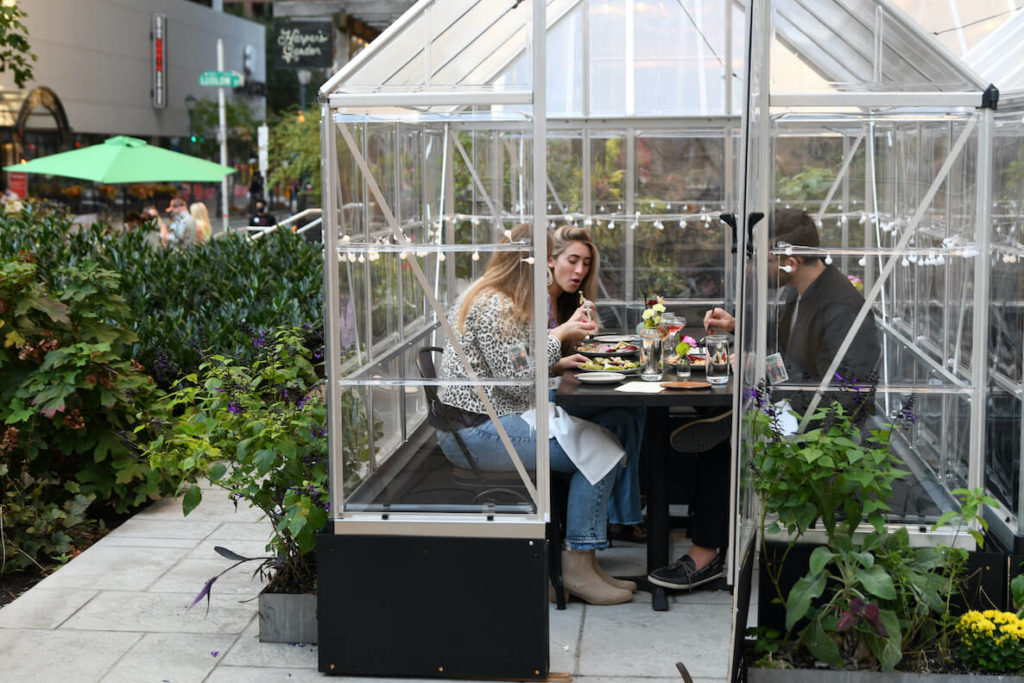
For now, Philadelphia is still allowing indoor dining, with capacity capped at 50 percent occupancy, and group sizes limited to no more than four people. Restaurants still rely heavily on outdoor seating and are starting to prepare for colder weather—and the increased Covid-19 cases coming with it.
FCM Hospitality’s Harper’s Garden built six small greenhouses, each of which will hold a single table. (The greenhouses, which are made of plastic, are intended to house a single group of diners, and can be aired out by opening several panels built into the sides of the structure.)
At Talula’s Garden, the restaurant is marketing a new kind of BYOB: Bring your own blanket. Nicole Marquis is adding a selection of hot cocktails that will be served in Thermoses at her two bars, Charlie was a sinner. and Bar Bombón.
Join us at our upcoming festivalFor more ideas we should steal
According to an Economy League report from late last year, some 79,000 people work in the food industry in Philadelphia, accounting for 12 percent of all jobs. More than half of those jobs are in restaurants. We rely on them—to feed our families and to gather with friends.
What if the Pennsylvania Restaurant and Lodging Association put together a team to launch a challenge here in Philly? We could all pitch in and come up with smart ideas to make dining out enticing through winter—otherwise, we may face a rude awakening when we finally leave our homes next spring.
Header image courtesy ASD | SKY


